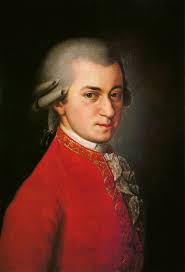Così fan tutte, K. 588, is one of the most celebrated operas composed by Wolfgang Amadeus Mozart. Premiered on January 26, 1790, at the Burgtheater in Vienna, this opera buffa (comic opera) stands as a testament to Mozart’s genius in combining intricate musical composition with a witty and provocative libretto by Lorenzo Da Ponte.
Origins and Commission
The opera was commissioned by Emperor Joseph II, who was an ardent supporter of the arts and had previously backed Mozart’s operas Le nozze di Figaro and Don Giovanni. The commission came at a time when Vienna was experiencing political and social shifts, yet Mozart was still able to secure patronage. Lorenzo Da Ponte, who had collaborated with Mozart on his earlier operas, wrote the libretto, drawing inspiration from themes of love, fidelity, and deception.
Plot and Themes
Così fan tutte (translated as “Thus Do All Women”) is a story of two young men, Ferrando and Guglielmo, who test the fidelity of their lovers, Fiordiligi and Dorabella, by disguising themselves and attempting to woo each other’s partner. Their plan is orchestrated by the cynical Don Alfonso, who believes that no woman can remain truly faithful. As the plot unfolds, the lovers are caught in a web of emotions, humor, and self-discovery, leading to a conclusion that leaves audiences questioning love and human nature.
Musical Brilliance
Mozart’s score for Così fan tutte is a masterpiece of refinement and subtlety. The music seamlessly blends moments of comic mischief with profound emotional depth. Highlights include the exquisite duets and ensembles, such as “Soave sia il vento,” a beautifully lyrical trio, and “Un’aura amorosa,” Ferrando’s heartfelt aria. The opera’s orchestration is also noteworthy for its elegance and clarity, reflecting the characters’ inner conflicts and evolving emotions.
Reception and Legacy
At its premiere, Così fan tutte received a warm reception, though its success was short-lived due to the death of Emperor Joseph II shortly after the first performances. The political climate in Vienna shifted, and the opera fell into relative obscurity for much of the 19th century. Critics at the time often found the plot frivolous and even scandalous, which contributed to its neglect.
However, the 20th century saw a revival of interest in Così fan tutte. Its psychological complexity, combined with Mozart’s sublime music, won over audiences and critics alike. Today, the opera is regarded as one of the pinnacles of the operatic repertoire and is performed regularly in opera houses worldwide.
Conclusion
Così fan tutte remains a timeless exploration of human relationships, love, and deception. Its combination of wit, charm, and musical brilliance ensures its place as one of Mozart’s finest operatic achievements. Whether viewed as a lighthearted comedy or a deeper commentary on human nature, Così fan tutte continues to captivate audiences more than two centuries after its creation.


No responses yet